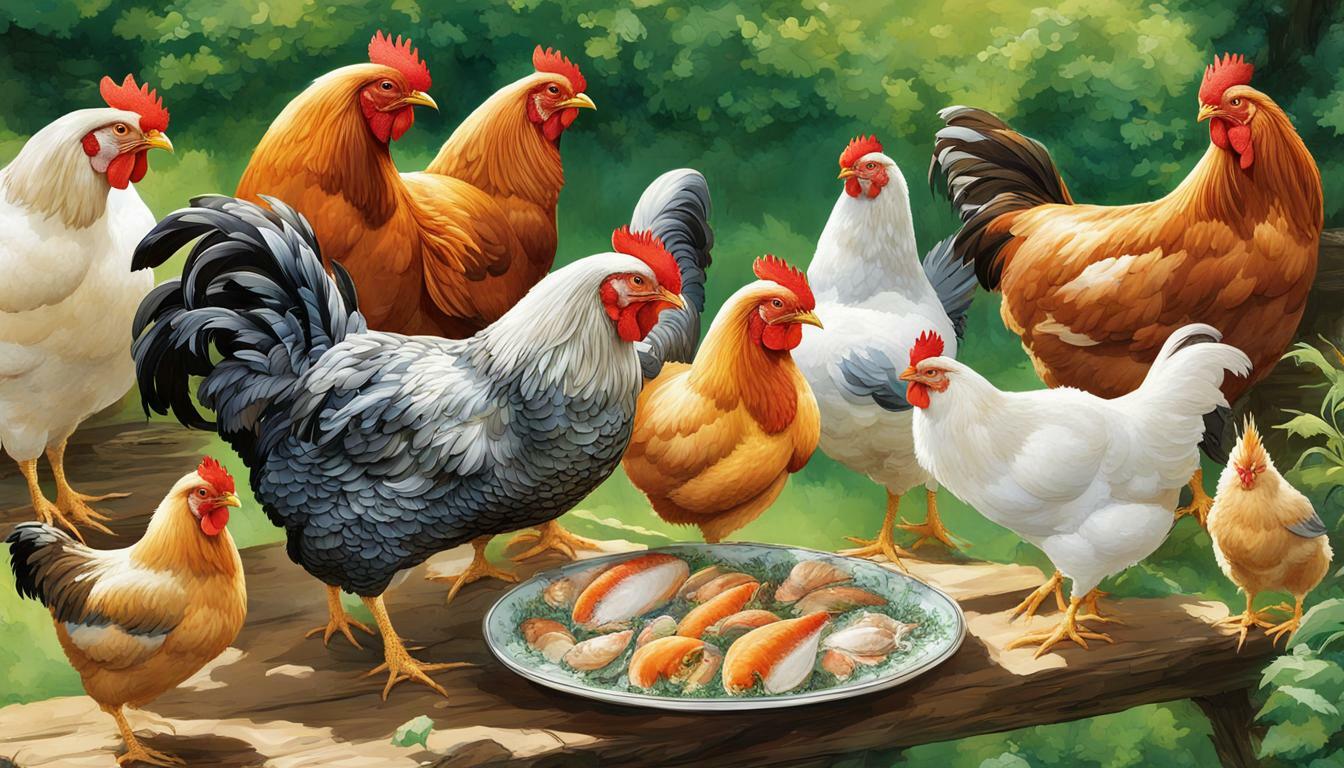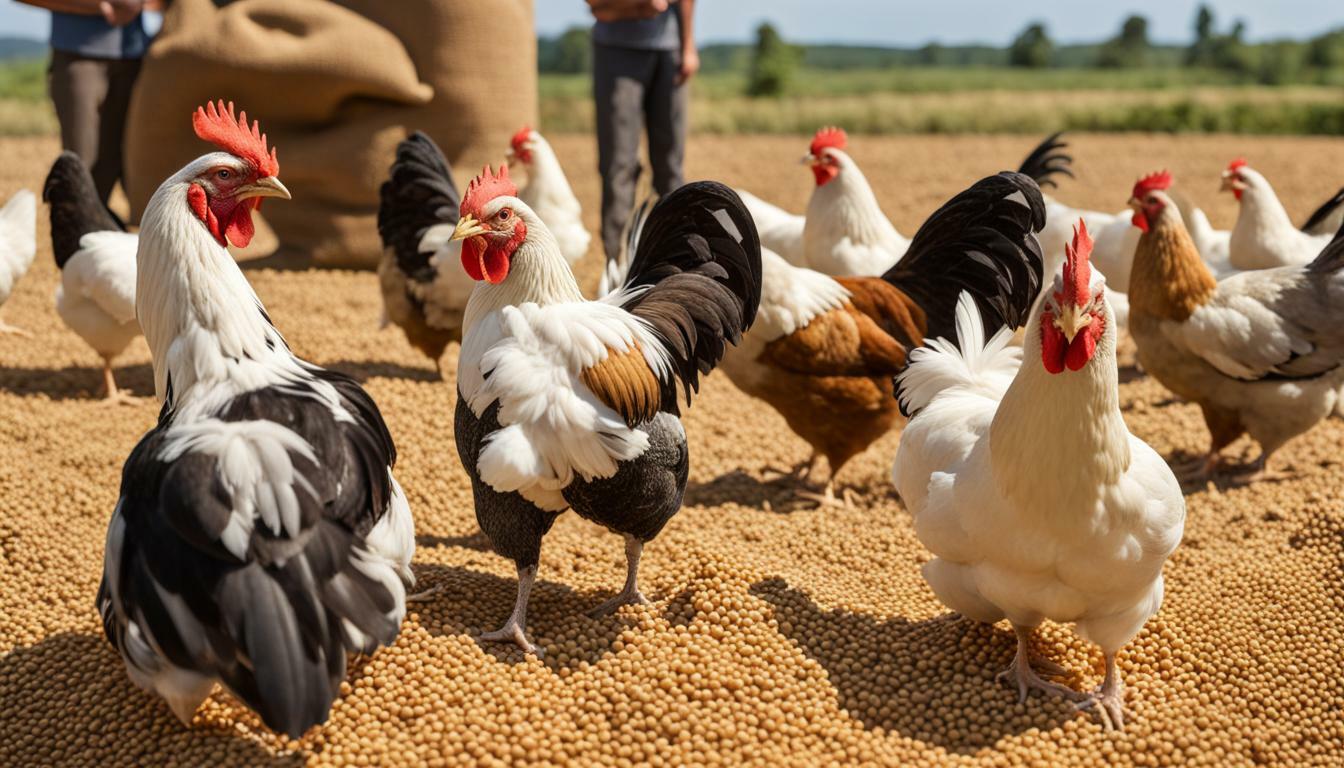Can Chickens Eat Fish Skin? Facts And Nutritional Benefits Explained

Table of content:
- Key Points:
- Is Fish Skin Good for Chickens?
- What Fish Skin Can Chickens Eat?
- Are There Benefits to Feeding Chickens Fish Skin?
- Is Salmon Skin Safe for Chickens?
- Can I Feed My Chickens Fish Scraps?
- What Foods Are Toxic to Chickens?
- What Meats Can I Feed My Chickens?
- Can Chickens Have Fish Oil?
- Can Chickens Eat Cooked Fish Bones?
- Final Thoughts
Chicken owners often wonder if they can feed fish skin to their backyard chickens. Fish contains many beneficial nutrients, so the idea seems appealing. However, not all fish are safe for chickens. Understanding which types of fish skin you can and cannot feed your flock is key. This article will explore the benefits and risks of feeding chickens various fish skins.
Key Points:
- Chicken owners often wonder if fish skins are safe to feed
- Fish contain beneficial protein, fats, vitamins and minerals
- Salmon, tilapia, bass and cod skins are generally safe in moderation
- Always cook fish skins first and avoid raw fish bones
- Introduce new fish slowly and watch for any digestive issues
- Fish scraps can provide a healthy dietary boost for backyard chickens
Is Fish Skin Good for Chickens?
Fish skin contains lots of protein and healthy fats. The omega-3 fatty acids in some fish promote:
- Feather growth
- Egg production
- Overall chicken health
So in moderation, certain fish skins make excellent occasional treats for chickens. Just don’t overdo it, as too much fish can lead to excess vitamin A and loose droppings.
Salmon skin and fish scraps are particularly nutritious options. But always feed fish skins cooked, as raw fish may contain dangerous bacteria or parasites.
What Fish Skin Can Chickens Eat?
Chickens can safely eat the skins of:
- Salmon
- Tilapia
- Cod
- Bass
Avoid feeding chickens the skins of:
- Tuna
- Trout
- Catfish
- Shellfish
Stick to fish from freshwater sources like lakes or farmed fish. Saltwater fish may have higher mercury levels.
Are There Benefits to Feeding Chickens Fish Skin?
Fish skin provides some great nutritional benefits for chickens:
- Protein for growth and egg production
- Omega-3 fatty acids for health and quality eggs
- Vitamins and minerals like B12, iron, and selenium
The fatty acids in salmon and fish oil especially help make chickens’ feathers strong and lustrous. Fish skins also provide more protein than chicken skin alone.
So offering cooked fish scraps can give chickens’ diets a healthy boost. Just feed fish skins in moderation, about once or twice a week.
Is Salmon Skin Safe for Chickens?
Yes, salmon skin is generally safe for chickens to eat. Make sure the salmon itself is fresh and fully cooked.
Salmon skin is a particularly nutritious treat because salmon is high in omega-3s. Some key tips:
- Cook salmon skin thoroughly first
- Remove any small bones
- Chop skin into bite-size pieces
- Limit to a few times a week
As with any new food, introduce salmon skin slowly. Watch for any signs of digestive upset or allergic reaction.
Salmon skin provides protein, healthy fats, vitamins, and minerals. In moderation, it can be a beneficial supplement to your flock’s diet.
Can I Feed My Chickens Fish Scraps?
Feeding chickens fish scraps from your own kitchen is usually fine. Good options include cooked:
- Salmon or tilapia skin
- Fish meat without bones
- Fish batter or breading
- Shrimp tails and shells
Avoid raw fish and fish bones, as these can make chickens ill. Also limit high-fat fish like tuna, which can cause diarrhea.
Rinse off any added salts, oils, or seasonings. And introduce new fish scraps slowly at first to watch for any issues. Overall though, fish scraps make a healthy, protein-rich supplement for backyard chickens.
What Foods Are Toxic to Chickens?
Some common human foods can be toxic or fatal to chickens. Foods to avoid giving chickens include:
- Chocolate
- Caffeine
- Raw potato skins
- Uncooked beans
- Dried beans or peas
- Green potato skins
- Green tomatoes
- Alcohol
- Moldy foods
- Salt
- Raw eggs
Also avoid spoiled, rotten, or molds fish and meats. Introduce any new treats slowly and watch for signs of illness.
What Meats Can I Feed My Chickens?
Chickens are omnivores and can eat a wide variety of meat. Good meat options include:
- Cooked chicken
- Turkey
- Lean beef
- Organ meats like liver
- Roasted fish
- Fish skins and cooked bones
- Eggs and shells
- Mealworms
- Crickets
Avoid or limit salty meats like bacon and ham. Always cook meats fully to kill bacteria like salmonella. And introduce new meats slowly to check for digestive issues. But overall, lean cooked meats make an excellent source of protein for chickens.
Can Chickens Have Fish Oil?
Fish oil supplements are generally safe and healthy for chickens in small amounts. Salmon oil and similar fish oils provide omega-3 fatty acids chickens need for:
- Shiny feathers
- High egg production
- General flock health
Aim to give chickens around 1 tsp of fish oil per 5 lbs of feed. You can mix liquid fish oil right into feed or offer as an occasional treat. As with any new supplement, start with small amounts. But fish oil can be a beneficial addition to your flock’s diet.
Can Chickens Eat Cooked Fish Bones?
Cooked fish bones are usually safe for chickens to eat. Small soft bones provide extra calcium, phosphorus, and other minerals. Good bones to feed include:
- Salmon
- Tilapia
- Trout
- Catfish
Avoid large, sharp bones that could injure chickens’ crops or intestines. Never feed chickens raw fish bones, which may harbor bacteria or parasites.
Overall though, small cooked fish bones make an excellent supplement to provide your flock needed minerals. Just remember to always cook bones first before feeding.
Final Thoughts
Feeding chicken fish skin and other fish products can provide valuable nutrition. Fish contain lots of protein, healthy fats, and key vitamins and minerals chickens need.
Just be sure to only feed your flock fish skins and scraps from freshwater, fully cooked fish. Avoid raw fish and fish bones. Introduce new fish slowly and watch for any signs of illness.
In moderation, fish skins from salmon, tilapia, cod, and other safe fish make an excellent supplemental treat. So don’t be afraid to put your own leftover fish skins to good use – your chickens will thank you!
Welcome. I’m Adreena Shanum, the proud owner of this website, and I am incredibly passionate about animals, especially poultry. I founded adreenapets.com as a labor of love, stemming from my desire to share my knowledge and experiences with poultry enthusiasts worldwide.




